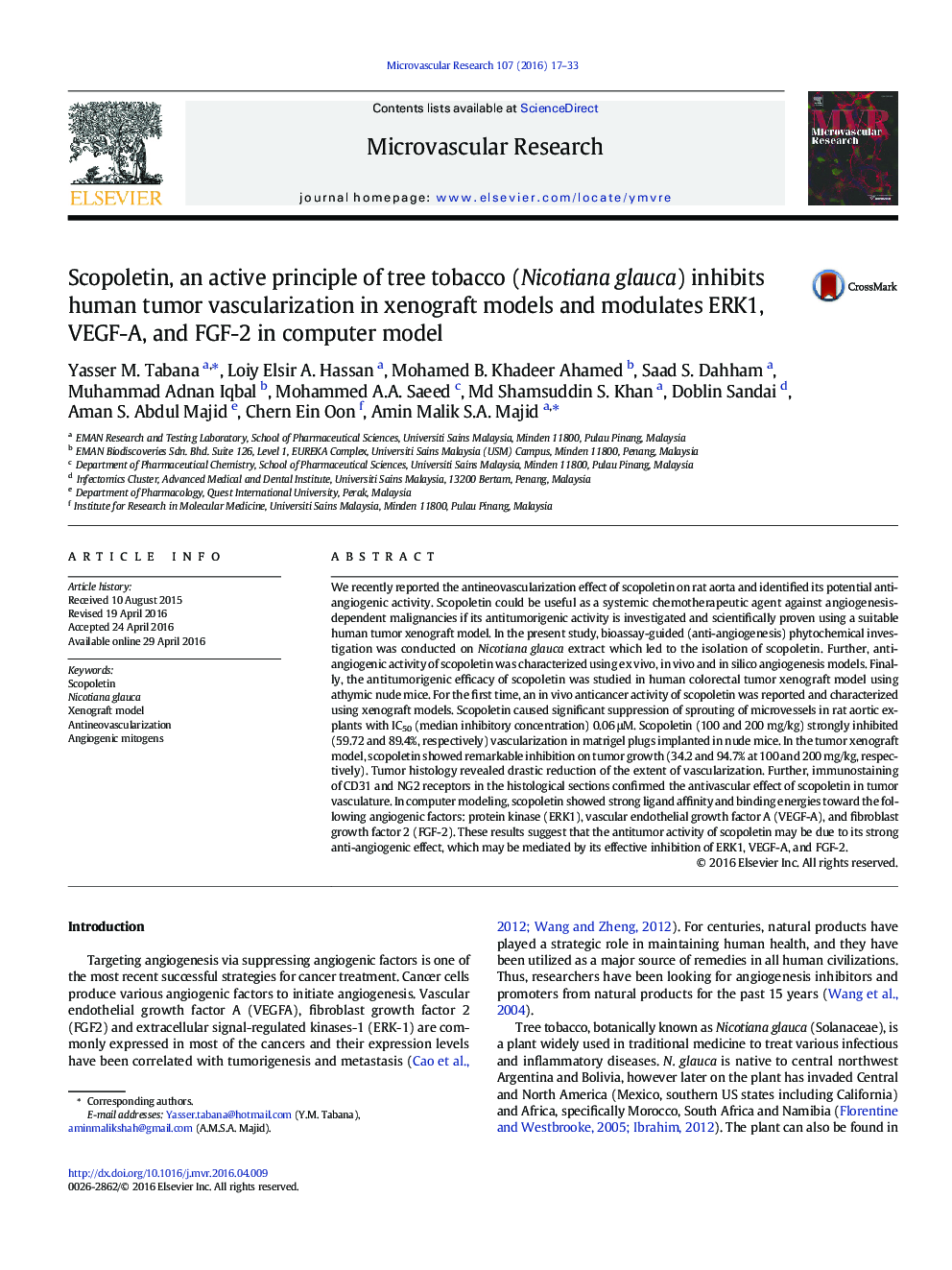| کد مقاله | کد نشریه | سال انتشار | مقاله انگلیسی | نسخه تمام متن |
|---|---|---|---|---|
| 1994675 | 1541277 | 2016 | 17 صفحه PDF | دانلود رایگان |

• Antiangiogenic activity of scopoletin was investigated.
• Scopoletin showed suppression of tumor in xenograft models.
• Antitumor effect of scopoletin is partly due to antivasularization.
• Scopoletin has strong affinity for ERK1, VEGF-A, and FGF-2 in silico.
• Immunostaining of CD31 and NG2 receptors confirmed the anti-vascular effect of scopoletin.
We recently reported the antineovascularization effect of scopoletin on rat aorta and identified its potential anti-angiogenic activity. Scopoletin could be useful as a systemic chemotherapeutic agent against angiogenesis-dependent malignancies if its antitumorigenic activity is investigated and scientifically proven using a suitable human tumor xenograft model. In the present study, bioassay-guided (anti-angiogenesis) phytochemical investigation was conducted on Nicotiana glauca extract which led to the isolation of scopoletin. Further, anti-angiogenic activity of scopoletin was characterized using ex vivo, in vivo and in silico angiogenesis models. Finally, the antitumorigenic efficacy of scopoletin was studied in human colorectal tumor xenograft model using athymic nude mice. For the first time, an in vivo anticancer activity of scopoletin was reported and characterized using xenograft models. Scopoletin caused significant suppression of sprouting of microvessels in rat aortic explants with IC50 (median inhibitory concentration) 0.06 μM. Scopoletin (100 and 200 mg/kg) strongly inhibited (59.72 and 89.4%, respectively) vascularization in matrigel plugs implanted in nude mice. In the tumor xenograft model, scopoletin showed remarkable inhibition on tumor growth (34.2 and 94.7% at 100 and 200 mg/kg, respectively). Tumor histology revealed drastic reduction of the extent of vascularization. Further, immunostaining of CD31 and NG2 receptors in the histological sections confirmed the antivascular effect of scopoletin in tumor vasculature. In computer modeling, scopoletin showed strong ligand affinity and binding energies toward the following angiogenic factors: protein kinase (ERK1), vascular endothelial growth factor A (VEGF-A), and fibroblast growth factor 2 (FGF-2). These results suggest that the antitumor activity of scopoletin may be due to its strong anti-angiogenic effect, which may be mediated by its effective inhibition of ERK1, VEGF-A, and FGF-2.
Figure optionsDownload as PowerPoint slide
Journal: Microvascular Research - Volume 107, September 2016, Pages 17–33